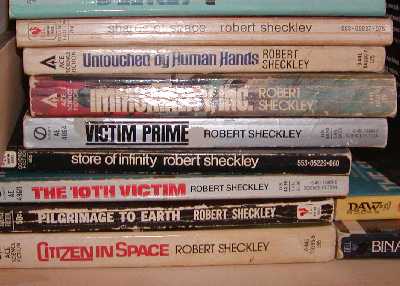I’m interrupting my hiatus to comment upon this Polly Toynbee article on C.S. Lewis’s The Lion, The Witch and the Wardrobe, largely because (a) I can report, like Mojoey, that I read the Narnia books as a child and I remain an atheist and (b) I recently had an interesting discussion with a friend about ethical atheism and the question of whether religious art can be valid in imparting ethical observations, irrespective of religious belief, is nestled in my mind.
A number of people have offered their thoughts on the subject already. But let’s ponder what seems to be considered the most offensive passage:
Over the years, others have had uneasy doubts about the Narnian brand of Christianity. Christ should surely be no lion (let alone with the orotund voice of Liam Neeson). He was the lamb, representing the meek of the earth, weak, poor and refusing to fight. Philip Pullman – he of the marvellously secular trilogy His Dark Materials – has called Narnia “one of the most ugly, poisonous things I have ever read”.
Why? Because here in Narnia is the perfect Republican, muscular Christianity for America – that warped, distorted neo-fascist strain that thinks might is proof of right. I once heard the famous preacher Norman Vincent Peel in New York expound a sermon that reassured his wealthy congregation that they were made rich by God because they deserved it. The godly will reap earthly reward because God is on the side of the strong. This appears to be CS Lewis’s view, too. In the battle at the end of the film, visually a great epic treat, the child crusaders are crowned kings and queens for no particular reason. Intellectually, the poor do not inherit Lewis’s earth.
First off, it is not acceptable criticism to offer Philip Pullman’s thoughts in lieu of one’s own, particularly when they have no relation to the argument in question. (Pullman’s remarks originated in the Weekly Standard, but I have had little success in tracking down the original article. So we lack context to frame Pullman’s statement. And there’s also this additional flaw from Toynbee: Was Pullman even talking about Christ being depicted as a lion rather than a lamb?) For one thing, as the Chronicle of Higher Education recently suggested, Pullman, as the author of a series of children’s fantasy books, may have ulterior motives for his statements. And it is disingenuous to frame Pullman’s remarks (he has also called the books “propaganda in the service of a life-hating ideology,” “monumentally disparaging of girls and women” and interested in a “sadomasochistic relish for violence”) when there are no supportive examples to back up his argument.
Further, there are countless Christ-like figures in literature. And if this is a quality that makes a novel verboeten, I suppose we will have to throw most of Flannery O’Connor’s oeuvre, Toni Morrison’s The Bluest Eye, William Faulkner’s A Fable (which won him the Pulitzer Prize), Preacher Casey from Steinbeck’s The Grapes of Wrath (who echoes Christ’s last words when confronted by union busters) and Shakespeare’s Prince Hal (to name just a few that come to mind) into the dust heap. But then since Ms. Toynbee seems inflexible with a talking lion representing Christ (instead of the standard lamb metaphor), one can only imagine how she might react to many of these depictions.
Whether an atheist or an academic likes it or not, western religion is deeply ingrained within our culture. I’m guessing that if you were to go Christmas shopping right now, you’d hear such hard-core Christian songs as “O Come All Ye Faithful,” “Hark the Herald Angels Sing” and “Joy to the World” over the speakers. If you take out your wallet or your purse right now, you will find the words “IN GOD WE TRUST” on the money you use to purchase things. But just as we have deity reference points when discussing Homer, is it so wrong to have similar reference points when discussing literature? Provided one does not use this as a pretext to proselytize, I’m mystified as to why it’s so evil to identify a literary metaphor that just happens to be religious.
As to the second paragraph, like my colleague Tito Perez, I’m puzzled as to whether Ms. Toynbee is referring to the film or the book or both. I suspect, however, that she’s jumping on Pullman’s quote, which would draw us to the novel, suggesting that in Narnia is “the perfect Republican, muscular Christianity for America — that warped, distorted neo-fascist strain that thinks might is proof of right.” I’m not certain if Lewis entirely intended this. Here’s the oft quoted Lewis remark: “I asked myself, supposing that there really was a world like Narnia and supposing it had (like our world) gone wrong and supposing Christ wanted to go into that world and save it (as He did ours) what might have happened?”
Even if we accept Aslan’s ideology as a “neo-fascist strain,” I should point out the White Witch is just as warped and distorted in her actions, having transformed Narnia into an unpleasant and wintry world, turning prisoners into stone, playing off of Edmund’s avarice by getting him hooked on Turkish Delight, using Edmund as a spy, is ready to kill Edmund shortly before Aslan and company arrive, and who then humiliates and kills Aslan. In other words, it’s safe to conclude that the White Witch isn’t exactly someone who you’d invite to a dinner party.
Further, Aslan is hardly a mighty figure in the book’s early pages. If anything, he’s a lion who lacks initiative most of the time and who indeed needs to be galvanized by the children into giving a damn about the White Witch’s actions. While it is true that these actions do result in a case of might making right, they might also be interpreted to be that of a figure too passive to carry out his duties and who needs to respond to it by committing something he might consider unethical or unpalatable (the murder of the White Witch) to achieve a greater good (harmony in Narnia). Given that the novel frames itself within the context of World War II, does this not strike a similar refrain for the true costs of taking out Hitler or the general atmosphere of the time? It is mortality that galvanizes Aslan and that causes him to return from the grave (in unsubtle Christ-like fashion). But to a child unfamiliar with Western religion, I’m wondering whether if this is really a matter of pounding Christianity into his head or a parable that can be examined independent of religion illustrating what happens when you rest on your laurels and bitch about how Narnia has gone to pot? (Certainly, this was how it came across to me as a kid.)
Okay, so it’s Aslan who remains the ruler at Cair Paravel for life as the kids grow up and eventually emerge from the wardrobe. (And the kids are crowned for assisting Aslan, rather than “for no particular reason.”) And that certainly qualifies as a dictatorship. But then one might argue that any realm ruled by a king and/or queen is “neo-fascist” as well. Which would pretty much demolish the credibility of most fairy tale kingdoms. It’s also a safe bet, however, that most children don’t perk their ears up at storytelling hour for the political dynamics of Camelot or Oz.
Toynbee also quibbles about Edmund’s conversion, calling him “a Stepford brother, well and truly purged.” I agree in part with Toynbee’s criticism here. As a boy, I never cared for this aspect of the tale, instinctively distrusting it as a boy. But what I did parse from the tale was that Edmund definitely felt guilt for being seduced by the White Witch. Given the narcotic quality of the Turkish Delight, was he truly in his right mind when he misled the children or reported on their movements to the White Witch? Does not magic need to be counteracted with some other magic in order to make everything whole? I’ll let the RPG folks sort that question out.
I should note that within Toynbee’s essay lies the makings for an interesting op-ed piece, perhaps less wild and pugilistic, and more rooted in provocative yet reasonable examples which might demonstrate how a religious allegory might be damaging to a child. Such generalizations as “We need no holy guide books, only a very human moral compass” do no favors to her argument, which is distinctly black-and-white in makeup. It fails to consider that different people use different sources (religious or non-religious) to determine their own moral compass. And that people will go on sinning and feeling guilt based on their respective moral compasses, irrespective of what religion they practice.
 Folks, I’m seriously bogged down and I won’t be particularly verbose here until after Thursday. In lieu of content, I leave you with this thought.
Folks, I’m seriously bogged down and I won’t be particularly verbose here until after Thursday. In lieu of content, I leave you with this thought. Before Douglas Adams and Terry Pratchett (and perhaps Connie Willis), there was Robert Sheckley. Far from a mere wiseacre (although he was that and much more), Sheckley was one of the first authors to fuse satire with science fiction. Years before Stephen King ripped off the idea for The Running Man and decades before the crazed spate of reality television shows, Sheckley had written a short story, “The Seventh Victim,” in 1953, devising a futuristic world in which game show contestants were designated Hunters and Victims and competed for cash by murdering contestants. A film and a novel followed: The Tenth Victim (1965). Here is an excerpt that shows Sheckley in top goofball form:
Before Douglas Adams and Terry Pratchett (and perhaps Connie Willis), there was Robert Sheckley. Far from a mere wiseacre (although he was that and much more), Sheckley was one of the first authors to fuse satire with science fiction. Years before Stephen King ripped off the idea for The Running Man and decades before the crazed spate of reality television shows, Sheckley had written a short story, “The Seventh Victim,” in 1953, devising a futuristic world in which game show contestants were designated Hunters and Victims and competed for cash by murdering contestants. A film and a novel followed: The Tenth Victim (1965). Here is an excerpt that shows Sheckley in top goofball form: